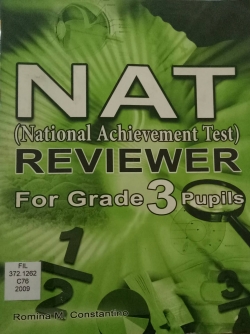Development and validation transition module in mathematics grade III

Type
Thesis
Authors
Morong ( Pamela )
Category
Pages
80
Abstract
Mathematics, along with reading and writing, is one of the three main content areas that elementary school pupils are expected to master during the elementary grades. Many pupils find mathematics intimidating, difficult to understand, and most difficult to master. Mathematics is a challenge to teach. Unlike reading and writing, mathematics is a totally different language for children to learn. Symbols represent operations. Operations are performed in different ways for different formulas. Symbols can be interchangeable and require different operations in different situations. Hence, the reading, writing, and interpreting of mathematical symbols can cause confusion for third graders who are struggling to understand new and abstract concepts relating to numbers and operations. A review of the literature supplied some answers to this question but it was not enough to rely on the pieces of literature reviewed to address the present situation in Marcelo H. Del Pilar Elementary School. The application of these suggested research findings in the school helped the math teachers improve instruction which resulted in increased pupils' understanding and appreciation for mathematical operations, and ultimately affected pupils' performance on chapter tests formative and summative tests. Furthermore, there is a need to study on those problems to help the present condition of pupils who struggle in their mathematics subject. Through the years, teaching mathematics in grade 3 public elementary school is very challenging. Aside from the fact that there are also problems in reading and comprehension, the pupils display difficulty in word problems particularly those in the last sections. Though at this stage, pupils should already be familiar with the fundamental operations, it can be observed that there are still a number of pupils who are called beginners because they have not mastered the skills of performing the fundamental operations, much more when these operations are already transformed int word problems. Thus with the present situation in the Philippine public school system, the researcher has been interested in developing modules that will help learners in mathematics appreciate the task by providing meaningful activities on fundamental operations to word problems. The teaching of fundamental operations and word problems in mathematics for grade 3 is very challenging. Hence this study is being conceptualized. This study provided answers to the following problems: 1.) What are the least mastered skills in Math among Grade 3 pupils in terms of :Number problems, and Word problems? 2.) What is the performance of the pupils before and after the implementation of the developed transition module based on the pre-test and posttest mean scores? 3.) Is there a significant difference in the performance of the pupils in solving number problems and word problems based on the pre-test posttest mean scores?, and what are the comments and suggestions of the teachers in the developed transition module? The study used the descriptive design. According to Smith (1998) as cited by Linn (2015), the main purpose of quantitative research is the detection of causal relationships between variables. In quantitative research information of observed behaviors of samples is obtained through statistical data collecting of the observed behaviors of the samples. The data, which are collected, are analyzed in numerical form. This type of research is more concerned with the objectivity and the validity of what has been observed. The sample size involved is usually large to identify what is being tested. In this study, it will utilize survey questionnaire as the instrument to gather the data needed to answer the specific questions of the study. The use of quantitative approach to research is very effective in this research because the researcher will be describing the least mastered skills in fundamental operations and word problems. This study found out what are the least mastered skills of Grade 3 pupils in Mathematics. With regard to the number problems, the least mastered skills are: dividing 2 digit numbers with a mean of 4.12 (low mastery); multiplying 2 digit numbers with a mean of mean of 5.52 (low mastery); subtracting 2 digit numbers with a mean of 6.85 (moderate mastery); and adding 2 digit number with a mean of 7.72 (moderate mastery). It can be observed that with number problems, the adding and subtracting of 2 digit numbers are skills which pupils in Grade 3 have the moderate mastery. And it can be observed that the multiplying and dividing 2 -digit numbers are skills in which the pupils have low mastery. In addition, the same result was also obtained in the word problems. The least mastered skills was in dividing 2 digit numbers with a mean of 4.02 (low mastery); multiplying 2 digit numbers with a mean of mean of 5.67 (low master of the pupils in the pre-test, there is a high increase in the mean which is moderate mastery There is a mean difference of 3.67 which is significant. Thus the null hypothesis "There is no significant difference between the protest and posttest of the pupils in solving number problems and word problem was rejected. It implies that the formulated module has helped the students developed their skills in number and word problem. The comments and suggestions of teacher-respondents on transition module revealed that contents are learner-centered with a mean of 4.22 which is rank 1 with a descriptive interpretation of very satisfactory. Second in rank is on the contents are clear and simple with a mean of 4.11 which is also very satisfactory. Third in rank is on the contents strengthen the skills with a mean of 3.98 which is satisfactory. Fourth in rank is on the contents provide varied activities with mean of 3.82 which is also satisfactory and last is the contents provide differentiated instruction with a mean of 3.58 which is satisfactory.
Number of Copies
1
| Library | Accession No | Call No | Copy No | Edition | Location | Availability |
|---|---|---|---|---|---|---|
| Main | 215 | 1 | Yes |
